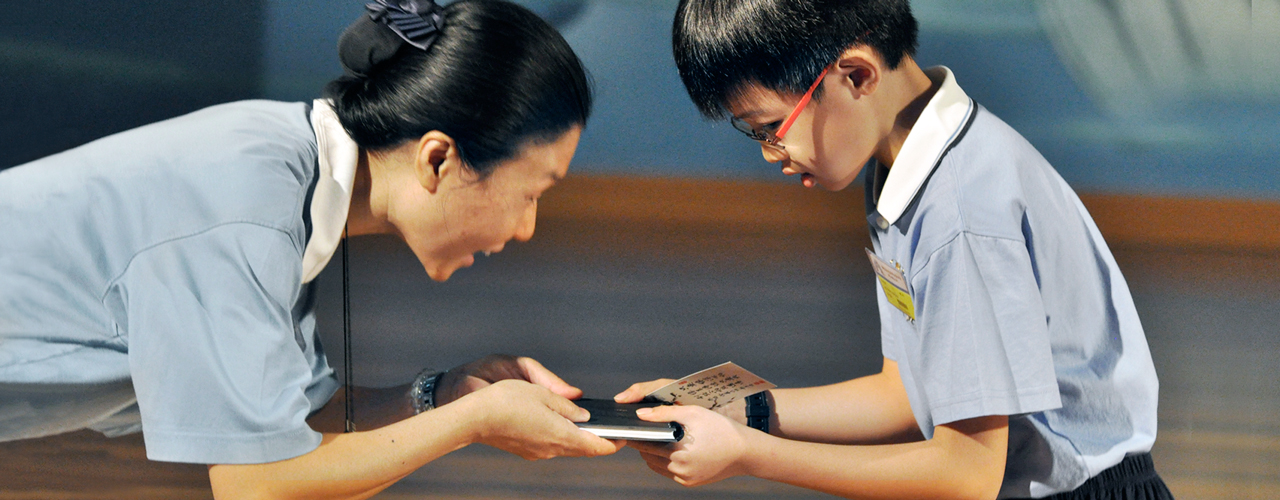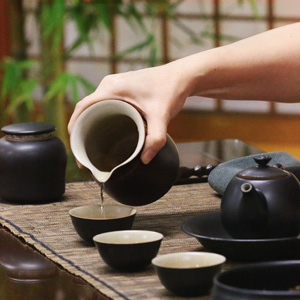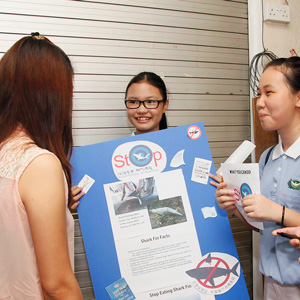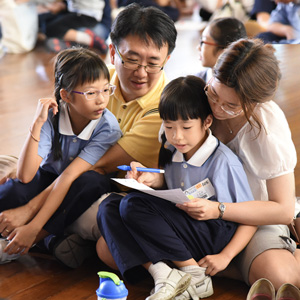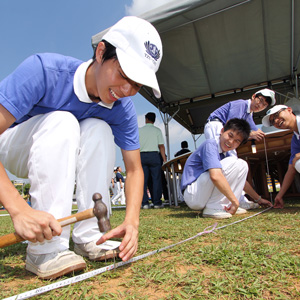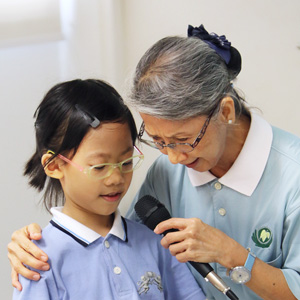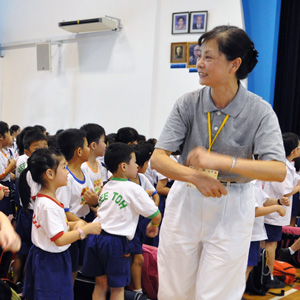Mission of Education
Unconditional Giving: Education – A Lifetime Mission
The role of education is to provide the right guidance to students. Otherwise, if a person strays from the right path in life, it will take a lot more effort to put him back on track. Hence, in educating children, we must start with character-building. If the young are not guided in the right direction, they will be ill-disciplined, like scattered branches. Tzu Chi’s Mission of Education, which starts from pre-school all the way to university, aims to nurture and grow children into adulthood through an education imbued with love.”
Dharma Master Cheng Yen
A Comprehensive and Holistic Education
After the establishment of the Mission of Medicine, Master Cheng Yen felt that while it was easy to find competent doctors, it was difficult to find dedicated and humane medical workers. Thus, she developed the idea to start the Mission of Education. As such, in the spirit of selfless giving, Tzu Chi committed itself to establish a comprehensive and complete education system, with the hope of nurturing talents who would serve the society with selfless love. The Master was firm in her conviction to provide a quality, holistic education that focuses on character-building and the teaching of living skills apart from the academics, one that nurtures the whole human being.
The Tzu Chi hospital in Hualien, Taiwan, was established in 1986, an era of economic boom enjoyed by the “Four Asian Dragons”, among which were rising economies, such as Singapore and Taiwan. Yet, there were often news reports of young aboriginal girls in eastern Taiwan turning to prostitution, which revealed the reality of poverty among those living in remote areas. To beef up the workforce in nursing, as well as raise the education standards and employment prospects of the aboriginal people living in rural eastern Taiwan, the Tzu Chi Junior College of Nursing was set up three years later in 1989. It was an important milestone that sowed the first seed for Tzu Chi’s Mission of Education.
By the year 2000, Tzu Chi’s vision of a “comprehensive education”, which includes pre-school, elementary school, high school, institute of technology, and university, was materialised. In particular, Tzu Chi University incorporated the concept of “respecting life and affirming humanity” into its general anatomy and surgical simulation courses as its core value. The courses have attracted interns from the National University of Singapore’s (NUS) School of Medicine to serve their practicum at the Tzu Chi Medical Centre in Hualien. Subsequently, both universities signed a Memorandum of Understanding and Cooperation that enables NUS’s medical students to have exchange and internship opportunities at the tertiary hospital each year.

Lifelong Nurturing
In light of the rapidly advancing economy and an efficiency-driven phase of education development (1979-1996) in Singapore, double-income families, the ready availability of domestic helpers, a culture of private tuition and an emphasis on paper-qualifications have become societal norms starting from the 1990s.
In 1992, Tzu Chi volunteers started using the school grounds of Mee Toh School for a children’s Dharma enrichment class. The class, which placed a strong emphasis on character-building, gradually evolved from an irregular education camp into a monthly class, marking the first step of Tzu Chi’s Mission of Education in Singapore. Starting from 2009, the children’s class was revamped into the Tzu Chi Parent-Child Bonding Class, which helps to foster parent-child bonding as well as encourages the personal development of parents, so that they may serve as better role models for their children.
To further enable secondary school students to be nurtured in a wholesome environment, the Tzu Chi Teenagers’ Class was formed in 1996. Before the arrival of the new millennium, the Tzu Chi Teachers’ Association and Tzu Chi Collegiate Youth Association were established one after another. These associations hold regular meetings, gatherings, learning trips to Taiwan, and encourage participation in various Tzu Chi activities, thereby inspiring goodness in their members and nurturing an all-round character in the younger generation.
After two decades of leveraging on the above-mentioned educational groups and activities in an effort to promote humanistic values in Singapore, Tzu Chi Singapore finally found suitable sites to establish three educational institutions, namely Tzu Chi Humanistic Youth Centre and two Tzu Chi Great Love PreSchool located in Yishun and Toa Payoh.
Education is a cornerstone in nation-building, and is not only limited to formal classroom instruction. In line with the emphasis on life-long learning in Singapore, the Tzu Chi Continuing Education Centre was set up in December 2005. The Centre offers a variety of courses that provide enrichment opportunities for lifelong learning and accepts students with ages ranging from 5 to 80 years. Apart from imparting knowledge and skills, the courses help to enhance students’ spiritual and emotional well-being in the midst of life’s hustle and bustle through a focus on humanistic values.
“Humanistic” Education

Gratitude to Parents
Filial piety is fundamental to being human. Master Cheng Yen hopes that people will return to the basic practice of filial piety by caring for the elder members of their family, extend this love to society, and then to the world and the environment. Hence, one of Tzu Chi’s Ten Precepts is to practise filial piety and be gentle in speech and demeanor (towards parents), and the Mission of Education regards this as fundamental to character development.
To promote the value of filial piety among youth, the Tzu Chi Collegiate Youth Association held book clubs and a musical adaptation based on the Sutra of Profound Gratitude Towards Parents. The musical was performed to the public on three occasions, in 2006, 2009, and 2014 respectively, and received much favourable response from the audience. In addition, in conjunction with Mothers’ Day and Fathers’ Day each year, every Tzu Chi educational group will hold a tea ceremony and/or foot-bathing activity, where children are guided to express their heartfelt love and gratitude to their parents through action.
Instilling a Love for the Environment in Children
The curriculum and activities of Tzu Chi’s educational groups and establishments include a strong emphasis on environmental conservation. This instills in the younger generation the importance of protecting the environment from further damage and teaches them how to reduce carbon footprint in daily life. Through programmes and activities that suit their respective age groups, including lively games, hands-on experience in recycling, informative talks, etc., students are progressively guided to implement green practices to care for the environment.
We offer holistic and humanistic education programmes that extend from preschool to university, including a teachers’ association.

